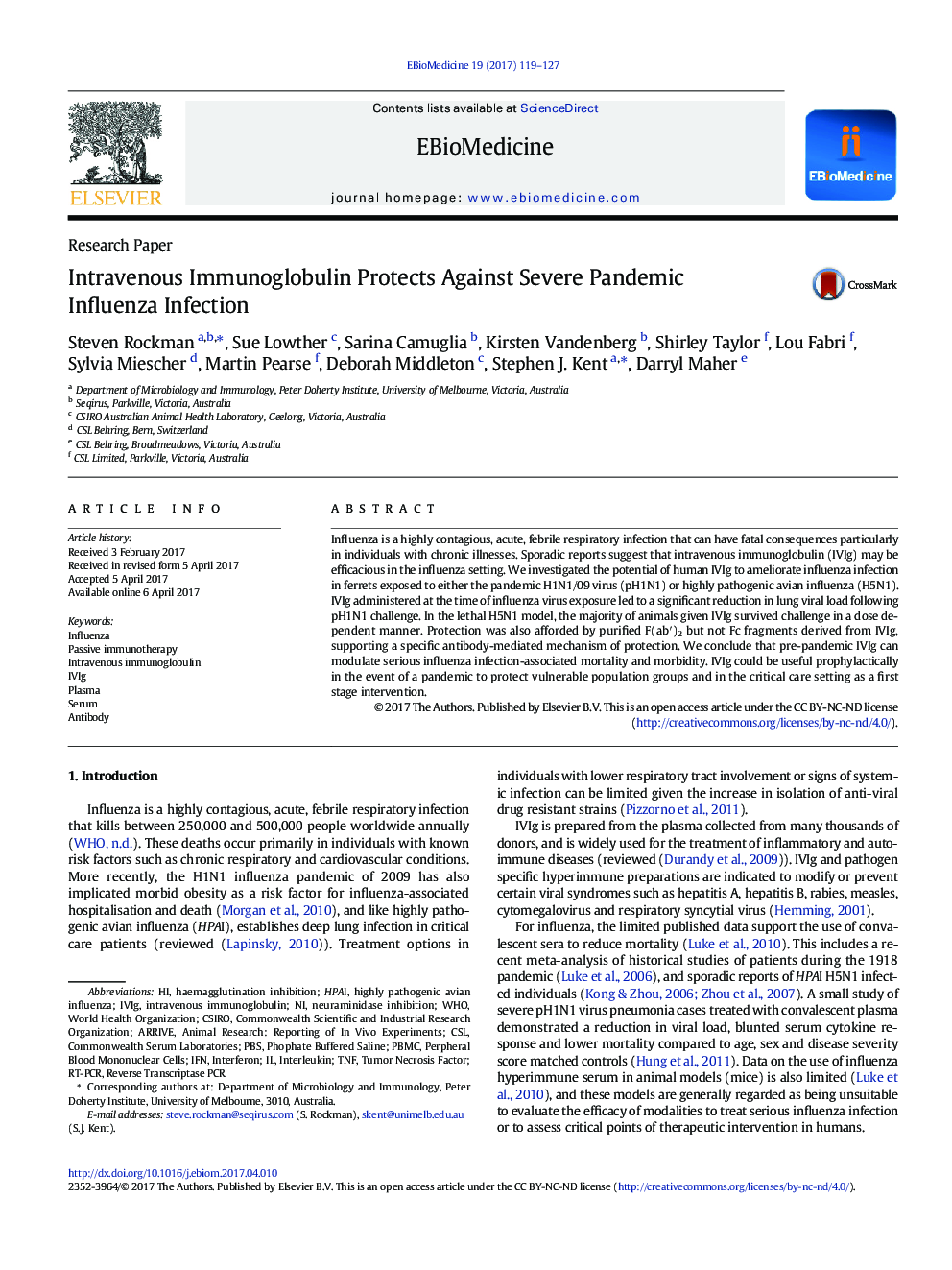| Article ID | Journal | Published Year | Pages | File Type |
|---|---|---|---|---|
| 8438333 | EBioMedicine | 2017 | 9 Pages |
Abstract
Influenza is a highly contagious, acute, febrile respiratory infection that can have fatal consequences particularly in individuals with chronic illnesses. Sporadic reports suggest that intravenous immunoglobulin (IVIg) may be efficacious in the influenza setting. We investigated the potential of human IVIg to ameliorate influenza infection in ferrets exposed to either the pandemic H1N1/09 virus (pH1N1) or highly pathogenic avian influenza (H5N1). IVIg administered at the time of influenza virus exposure led to a significant reduction in lung viral load following pH1N1 challenge. In the lethal H5N1 model, the majority of animals given IVIg survived challenge in a dose dependent manner. Protection was also afforded by purified F(abâ²)2 but not Fc fragments derived from IVIg, supporting a specific antibody-mediated mechanism of protection. We conclude that pre-pandemic IVIg can modulate serious influenza infection-associated mortality and morbidity. IVIg could be useful prophylactically in the event of a pandemic to protect vulnerable population groups and in the critical care setting as a first stage intervention.
Keywords
TNFPBSPBMCNeuraminidase inhibitionAnimal Research: Reporting of In Vivo ExperimentsCSLRT-PCRCSIROHPAIIVIgReverse transcriptase PCRhighly pathogenic avian influenzaInfluenzaPassive immunotherapyinterferonIFNinterleukinIntravenous immunoglobulinARRIVEWorld Health OrganizationCommonwealth Scientific and Industrial Research OrganizationSerumtumor necrosis factorhaemagglutination inhibitionAntibodyPlasmaWHO
Related Topics
Life Sciences
Biochemistry, Genetics and Molecular Biology
Cancer Research
Authors
Steven Rockman, Sue Lowther, Sarina Camuglia, Kirsten Vandenberg, Shirley Taylor, Lou Fabri, Sylvia Miescher, Martin Pearse, Deborah Middleton, Stephen J. Kent, Darryl Maher,
